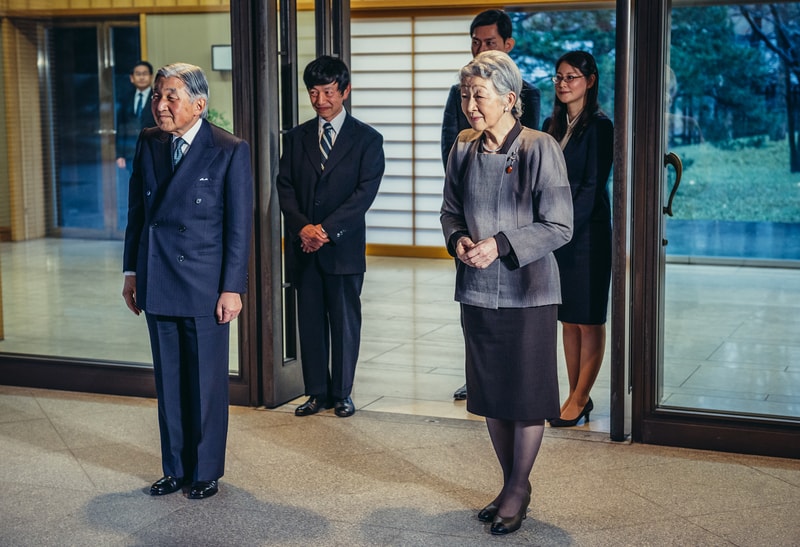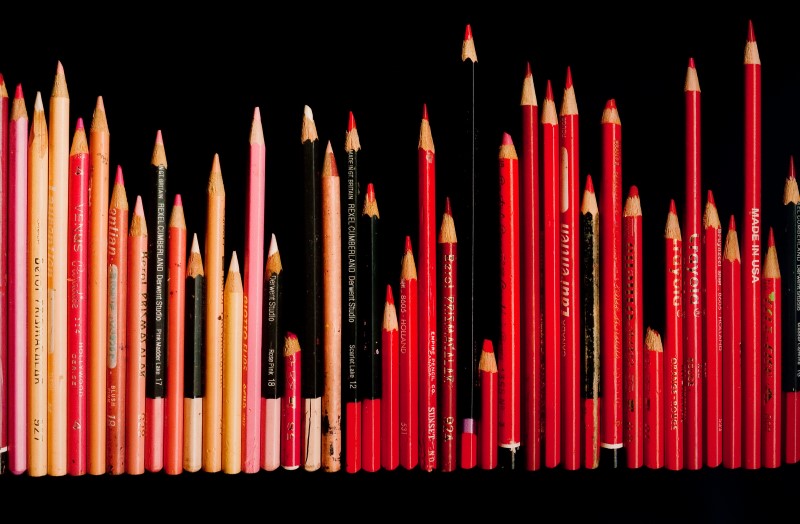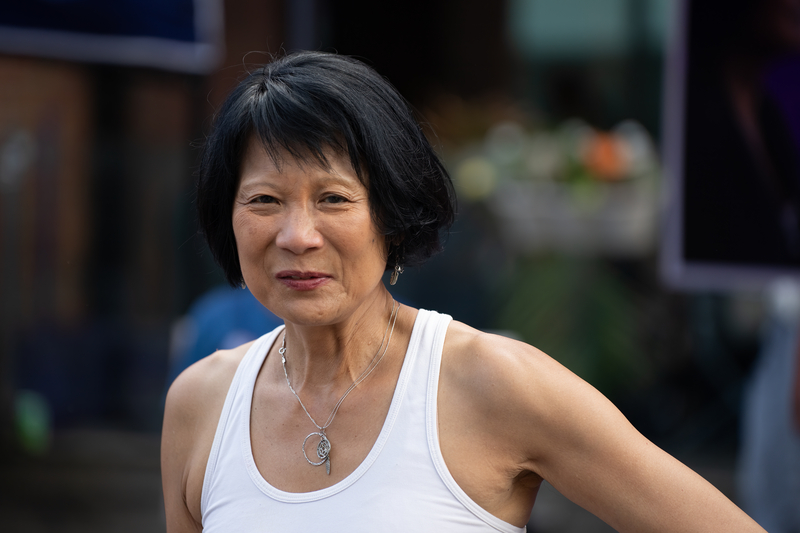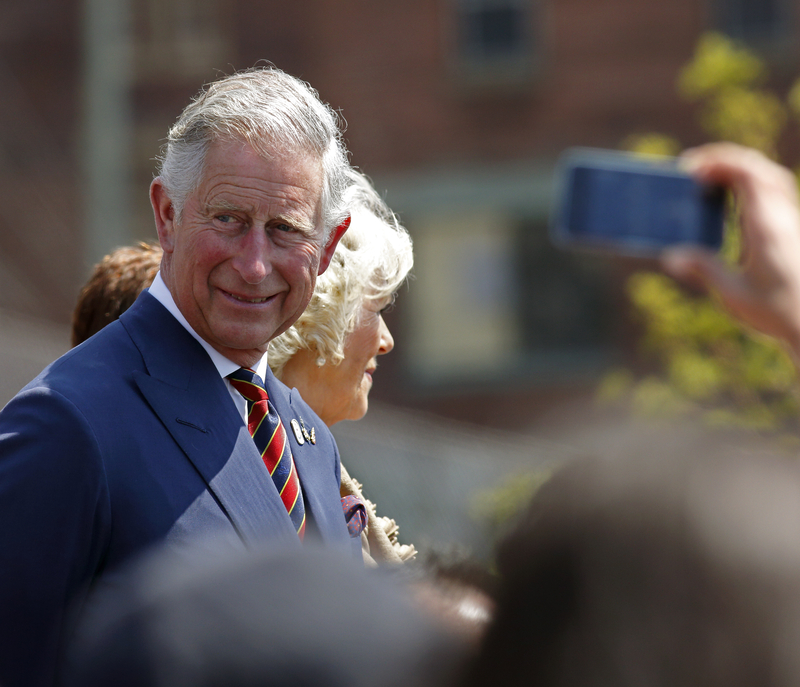Yesterday morning, a historic moment happened in Japan. Emperor Akihito went on television and addressed his nation. His voice was soft spoken, but his words created a real stir. It turns out, the 82 year-old just wants to do something that people nearly 20 years younger than him have done long ago.
He wants to retire.
Emperor since 1989
Japanese citizens watch their emperor speak about retiring on a public video screen. (Getty Embed)
Akihito has been the Emperor of Japan since 1989 and is the 125th ruler in the country's line of succession (this is the term for the rulers who have passed their rule on to their oldest living son). He has survived both cancer in 2003 and heart surgery in 2012. For his age, he is in very good health. But in his address, he said that "when I consider that my fitness level is gradually declining, I am worried that it may become difficult for me to carry out my duties as the symbol of the state with my whole being as I have done until now."
In other words, I really am getting old and don't have the energy to do my job in the way that it deserves to be done. That's a pretty fair request. And in a quick poll, nearly 85 percent of Japanese citizens approve letting Akihito retire. But in a country as deeply traditional as Japan, this doesn't make it a given that he'll be allowed to. After all, the Imperial Household Law states that an emperor cannot abdicate, or leave, the throne until death or until a serious physical or mental illness makes it impossible for him to perform his job.
But it's tradition! (Except that it's also not)
Emperor Akihito visits Canada in 2009. (Getty Embed)
When you read a law like that, it makes it sound like Akihito is in a bit of pickle. The law is pretty clear. And in case you're wondering, Japan's monarchy — known as the Chrysanthemum Throne — is no small thing. It is the planet's oldest continuous monarchy, dating back around 2,700 years. That's remarkable. But, as you might guess, a lot has changed over those nearly three millennia.
For one, as with the Queen of England, the emperor isn't the true ruler of the country. That person is Prime Minister Shinzo Abe. Instead, Emperor Akihito is a figurehead. That's a symbolic leader who acts more as a spiritual soul of the country. And in the case of Akihito (who is a pacifist, meaning he is against war), he is almost like the conscience of the country. So even though he doesn't make laws, he is an important part of how the Japanese view their world and how they should live. But it also means that his fate is in the hands of the person who does write laws: Prime Minister Abe.
Secondly, in the 2,700 years of Japanese emperors, do you know how many abdications there have been? Like, lots. Seriously, we don't have time to list them. The point being, for thousands of years, it was no big deal for an emperor to say, "Look, I'm getting too old for this, and my son here is totally ready for the job. I'm passing it on to him." And Japan was like, "Sure thing. You bet." But in the 19th century, Japan's culture shifted to worship the emperor less like a man and more like a god. Once that happened, abdication was strictly forbidden.
Carrying on his father's legacy
Akihito when he was Crown Prince of Japan, with his father, Emperor Hirohito. Since his death, Hirohito is known as Emperor Showa. (Getty Embed)
In many ways, Akihito is simply carrying on the legacy of change started by his father, Emperor Hirohito. He was the emperor for 64 years — from 1926–1989. Hirohito experienced much in his reign, including World War II and the tragic atomic bombing of Hiroshima and Nagasaki by American forces. After the war ended, he announced to his country that he was not a god. This led to Japan's laws being changed so that the emperor was just a symbol, not the actual ruler.
Today, the next heir to the Chrysanthemum Throne is Crown Prince Naruhito. Prime Minister Abe, who is a more traditional politician, has said that he is open to the idea of letting Akihito retire. But he hasn't said yes yet.
The Emperor, as well as all of Japan, awaits his decision.
 Emperor Akihito stands with his wife, Empress Michiko, at the Imperial Residence, Gosho in 2015. (© Fotokon | Dreamstime.com)
Emperor Akihito stands with his wife, Empress Michiko, at the Imperial Residence, Gosho in 2015. (© Fotokon | Dreamstime.com)









